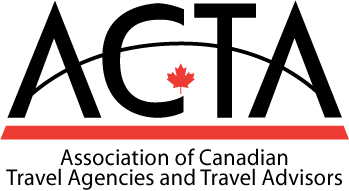Airline French Rule ‘Unfair’
Mark Bourrie, Blacklocks.ca
A Transport Canada manager says a federal law requiring Air Canada to offer bilingual service puts the airline at a competitive disadvantage. The Commissioner of Official Languages in a 2016 Special Report To Parliament said the carrier is in habitual breach of the Act.
“My day job is to work as a policy analyst,” said Sara Wiebe, acting assistant deputy minister of policy at the Department of Transportation. “Whenever you look at a policy issue and you see that there’s a policy anomaly you wonder why that is. Right now we have a policy anomaly with regard to the obligation of official languages with regard to Canada’s air carriers. Air Canada is subject but the other air carriers are not.”
The airline was the target of 369 complaints in a seven-year period alleging breaches of the law, the most complaints of any federally-regulated employer. Testifying at the Commons official languages committee, Wiebe noted the airline carries more than 30 million passengers a year.
“Do you believe that Air Canada faces unfair competition because of its obligations to official languages?” asked Liberal MP Linda Lapointe (Rivière-des-Mille-Îles, Que.). “Yes,” replied Wiebe. “We’ve heard from Air Canada.”
About 65 percent of Air Canada call centre employees are bilingual, by company estimate. Bilingualism rates among all staff range from 14 percent in Vancouver to 15 percent in Edmonton; 21 percent in St. John’s; 22 percent in Toronto; 26 percent in Halifax; 28 percent in Calgary; 55 percent in Winnipeg; 72 percent in Ottawa; and 100 percent in Montréal.
MPs questioned whether all other federally-regulated airlines should be subject to the 1969 Official Languages Act. Transport Canada dismissed the proposal as impractical.
“That comes at a cost,” said Wiebe. “The federal government is not providing them with any funding to support that, so inevitably the cost that they are expending in support of that obligation does then trickle down to the traveler.”
“What would be the cost be and what would the impact be on the traveler?” said Wiebe. “There are already a variety of fees and charges they are subject to, so we’re hesitant to consider additional measures that would further exacerbate the cost of travel in Canada.”
The Supreme Court in 2014 dismissed claims of $19,000 in damages by an Ottawa couple who alleged they were denied service in French. The couple filed the language complaint following 2009 flights to Atlanta and Charlotte, North Carolina.
“Other major Canadian airlines such as WestJet, Air Transat, Porter Airlines, and Sunwing are not subject to the same obligations as Air Canada,” said Wiebe; “It should be noted that Air Canada does not receive any direct or indirect funding from the federal government for its linguistic training programs, the language assessments of its employees, or its bilingual communications activities.”
The Commissioner of Official Languages had recommended regulators consider fining the airline for breaches of the Act. Under Canadian Aviation Regulations, all commercial carriers must provide basic safety instructions in English and French.
